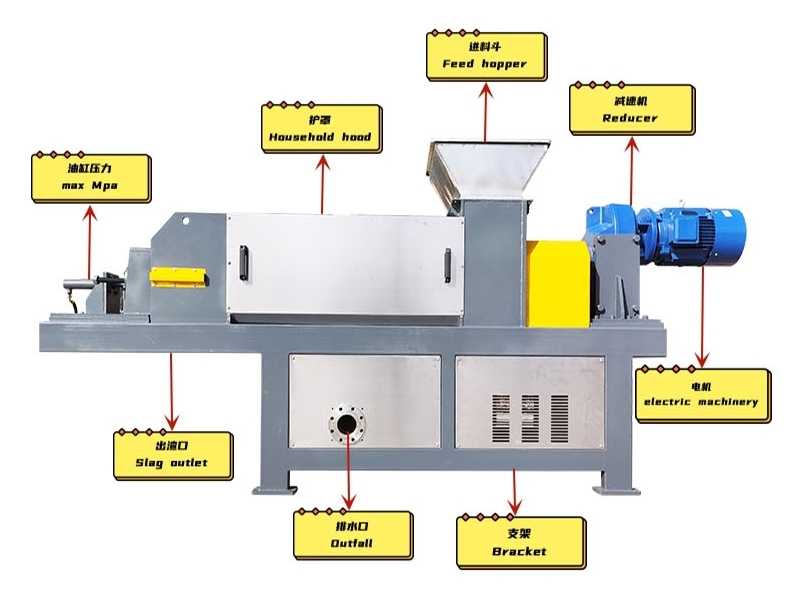
Introduction:
Organic waste poses a significant environmental challenge, contributing to pollution and greenhouse gas emissions when improperly managed. To address this issue, innovative technologies like the Organic Waste Dewatering Screw Press have emerged as promising solutions for efficient and sustainable waste management practices.
Overview of Organic Waste Dewatering Screw Press:
The Organic Waste Dewatering Screw Press is a mechanical device designed to separate water from organic waste materials, thereby reducing the volume and facilitating easier handling and disposal. This technology plays a crucial role in the conversion of organic waste into valuable resources such as compost or bioenergy.
Key Features and Working Mechanism:
Screw Press Design:
The device consists of a screw conveyor enclosed within a cylindrical chamber.
The screw press is equipped with a variable-speed drive to optimize the dewatering process.
Material Feed:
Organic waste, such as food scraps, agricultural residues, or sewage sludge, is fed into the screw press.
Dewatering Process:
As the screw rotates, it conveys the organic waste towards the discharge end.
The mechanical pressure exerted by the screw effectively separates water from the organic material.
Liquid Separation:
The extracted liquid, rich in water content, is separated from the solid fraction.
Output:
The dewatered organic waste, reduced in volume and moisture content, can be further processed for composting, anaerobic digestion, or other applications.
Benefits of Organic Waste Dewatering Screw Press:
Volume Reduction:
The technology significantly reduces the volume of organic waste, easing transportation and storage.
Resource Recovery:
Separated liquid can be used for irrigation or other non-potable water applications.
The dewatered solid fraction is a valuable resource for composting or as a feedstock for bioenergy production.
Odor Control:
Dewatering helps minimize the production of foul odors associated with decomposing organic waste.
Cost-Effective and Sustainable:
The process is energy-efficient and contributes to sustainable waste management practices.
Applications:
Municipal Waste Treatment Plants:
Effective for dewatering sewage sludge and reducing the overall waste volume.
Agricultural Sector:
Useful for dewatering crop residues and animal manure.
Food Industry:
Ideal for managing food processing waste and reducing environmental impact.
Conclusion:
The Organic Waste Dewatering Screw Press represents a significant advancement in sustainable waste management technology. Its ability to efficiently dewater organic waste while recovering valuable resources aligns with the global push towards circular economy principles. By adopting such innovative solutions, we can mitigate the environmental impact of organic waste and move towards a more sustainable and eco-friendly future.




If your company wants to establish a business relationship with us, please briefly describe the cooperation intention and send an email to:chuantaiscrewpress@gmail.com























































































![[list:title]](/static/upload/image/20240528/1716877114510915.jpg)